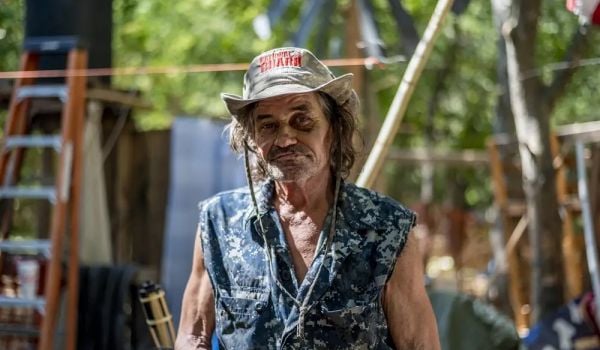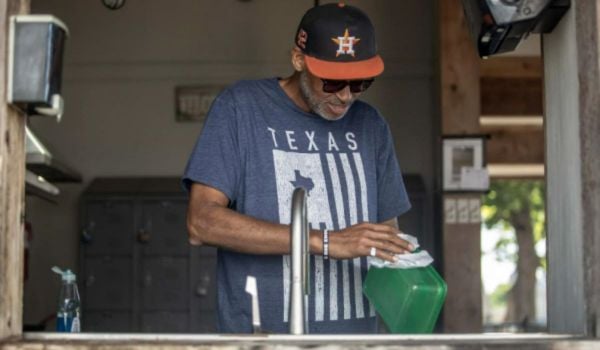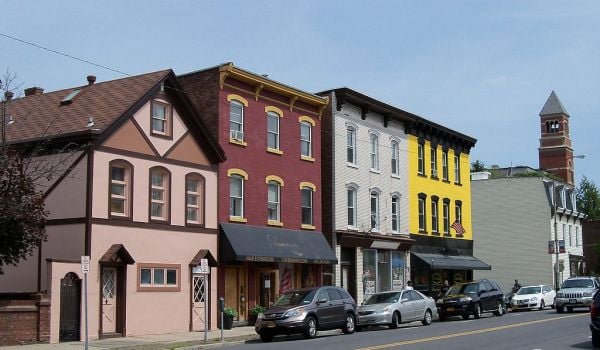“The need for this program far exceeds available resources.”
That was how the Housing Authority of the City of Austin put it when it reopened its waitlist for Housing Choice Vouchers last September for the first time in four years. The Housing Choice Voucher program, which was previously known as Section 8, helps low-income families make up the difference between the cost of rent on the private market and what they’re able to afford. In 2014, the last time the Authority opened the waitlist, it got 20,000 applicants. It whittled them down to 2,500 through a lottery. It was expecting to do the same again last year, randomly selecting another 2,000 applicants just to get in the line for a voucher.
But even when a family gets a voucher, says Michael Gerber, president and CEO of the housing authority, they may find it very difficult to find a landlord who will accept it. As Next City has reported before, Texas landlords are allowed to reject tenants based on their source of income. And like a lot of growing cities, Austin is facing a critical shortage of affordable housing across the board, which is especially acute at the lowest end of the income scale.
“While a housing authority I don’t think has a responsibility for fixing all of [the housing shortage], we certainly feel a responsibility to try to address it as best we can,” Gerber says. “It’s hard to say to that resident, ‘Here’s a housing choice voucher. We know you’re not going to be able to use it.’”
So as part of its effort to make more housing available to voucher holders, the housing authority is continuing to expand a strategy of acquiring housing units on the private market and making some of them affordable for low and moderate-income people. Recently, the housing authority, in partnership with the affordable-housing investment group Community Development Trust, bought a 452-unit apartment complex in Southeast Austin, as the Austin American-Statesman reported. The authority is planning to rent the units to tenants earning no more than 80 percent of median family income, which works out to $48,200 for an individual or $68,800 for a family of four. And it’s planning to market at least 15 percent of the units to voucher holders and tenants receiving assistance through HUD’s Veterans Affairs Supportive Housing program.
The project, called The Bridge at Asher Apartments, is pushing into more valuable real-estate territory than a lot of the Authority’s other projects, Gerber says. It’s adjacent to a growing commercial area, and none of the other properties in that area were accepting housing choice vouchers, according to Gerber. It’s also near high-quality schools, which is why the Kresge Foundation and the National Housing Trust supported the project with a $4 million grant from the HOPE Fund, which helps establish low-income housing near good schools. It’s also a shorter commute to downtown, where the jobs are, Gerber says.
“We’re excited to be there,” Gerber says. “It’s a big property, and it’s a challenging property, but it’s an exciting property for us and it’s getting awfully close to those southern suburbs which are becoming so desirable.”

The Austin Housing Authority recently purchased this property, The Bridge at Asher Apartments, in partnership with Community Development Trust. It will rent the units to families holding Housing Choice Vouchers (also known as Section 8).
Adrianne Todman, CEO of The National Association of Housing and Redevelopment Officials (NAHRO), which represents housing authorities and community development agencies, says that most public housing authorities currently focus on preserving the public units in their ownership and building new projects with federal Low-Income Housing Tax Credits. The Housing Authority of the City of Austin has done a good job of acting as a proactive housing provider in the city, Todman says.
“Austin is looked at as one of the most innovative agencies in the country, and it has solid leadership,” Todman says.
In many places, Todman says, city leaders have seen public housing and housing authorities as something that’s outside their purview — “something that’s happening over there,” she says. But as affordable housing becomes an issue that is impacting more people in more places at different income levels, some cities are starting to look to their housing authorities as assets, she says. Some housing authorities — like the King County Housing Authority near Seattle — have been able to acquire housing on the private market and convert or preserve it for lower-income residents.
“For most housing authorities, that is not something that they do, but where it’s being done it’s being done really well,” Todman says. “And one of the goals we have at NAHRO is helping other groups learn how to really become a local player.”
In Austin, the city council and the mayor have also brought a productive focus to issues of housing affordability, Gerber says. This past spring, the city council passed a plan called Affordability Unlocked, which creates incentives in the former of greater density and looser regulations for projects that are geared toward tenants earning less than 60 percent of the median income, as Next City has reported. And last fall, voters approved a $250 million bond intended to finance affordable housing construction and preservation. Those programs dovetail with the housing authority’s acquisition strategy, Gerber says. At another project, the authority was able to use the Affordability Unlocked rules to reduce the number of parking spaces to what it believes the residents there will actually need and expand the amount of green space on the site and the size of a connected community center, Gerber says. And it plans to apply for funds from the most recent housing bond, which it has not done in the past, he says.
Many policies in Austin and elsewhere are focused on incentivizing private developers to construct affordable housing. But public housing authorities serve a group of residents whose needs are greater than the market is likely to ever provide, Gerber says. The typical voucher holder in Austin earns less than $13,000 a year, according to Gerber, and the authority disproportionately serves seniors, people with disabilities, families with children, and people transitioning out of homelessness. Acquiring more property will help it find new ways to serve those people, Gerber says.
“We are a piece of the affordability puzzle in Austin,” he says. “We’re trying to do our part.”
This article is part of Backyard, a newsletter exploring scalable solutions to make housing fairer, more affordable and more environmentally sustainable. Subscribe to our weekly Backyard newsletter.

Jared Brey is Next City's housing correspondent, based in Philadelphia. He is a former staff writer at Philadelphia magazine and PlanPhilly, and his work has appeared in Columbia Journalism Review, Landscape Architecture Magazine, U.S. News & World Report, Philadelphia Weekly, and other publications.
Follow Jared .(JavaScript must be enabled to view this email address)














